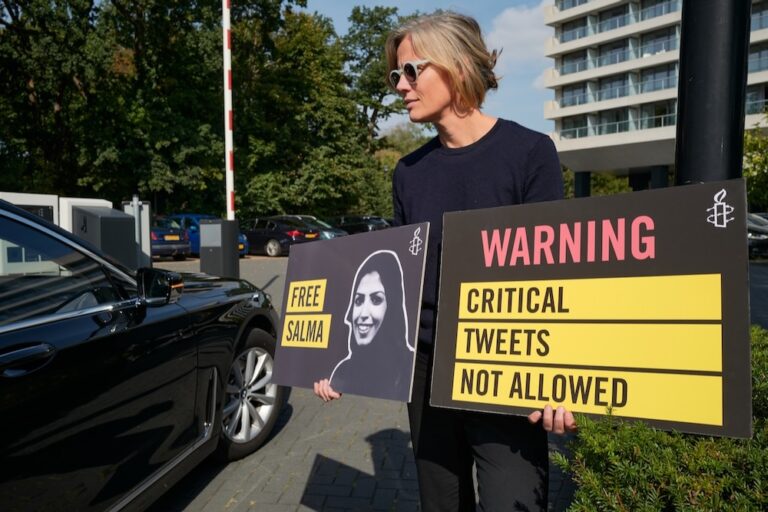(RSF/IFEX) – In a letter to the Saudi Consultative Council (Majlis Al-Shoura), RSF has condemned the ban imposed on the Qatar-based satellite channel Al-Jazeera, barring the station from covering the Hajj rites. “As the guardian of holy Islamic sites, the Saudi authorities must demonstrate their open-mindedness and accredit, without discrimination, all stations that wish to […]
(RSF/IFEX) – In a letter to the Saudi Consultative Council (Majlis Al-Shoura), RSF has condemned the ban imposed on the Qatar-based satellite channel Al-Jazeera, barring the station from covering the Hajj rites.
“As the guardian of holy Islamic sites, the Saudi authorities must demonstrate their open-mindedness and accredit, without discrimination, all stations that wish to retransmit video footage of the religious celebrations,” insisted RSF Secretary-General Robert Ménard.
The organisation also asked that Al-Jazeera journalists be authorised to cover the Gulf Cooperation Council’s (GCC) defence and foreign ministers’ summit, scheduled for 15 February 2003 in Jeddah, Saudi Arabia.
“We applied for visas for our nine-member crew three months ago because we knew that there was a big chance that we would not get the OK,” Al-Jazeera editor-in-chief Ibrahim Hilal explained. A Saudi official confirmed, under cover of anonymity, that the visa applications had been received and rejected.
Relations between Saudi Arabia and Qatar have been stormy since June 2002, when Al-Jazeera broadcast a programme that the Saudi authorities deemed insulting to the royal family. The quarrel between the Qatari station and the Saudi authorities escalated into a diplomatic crisis in September, when Saudi Arabia recalled its ambassador to Qatar and demanded an official apology from the Qatari government.
Although Al-Jazeera has never had a bureau or permanent correspondent in Saudi Arabia, the station had been authorised to cover the pilgrimage for the past three years. Many other stations, such as the American station CNN, Saudi station MBC and Emirati station Abu Dhabi TV, were allowed to broadcast live from Mecca during the various stages of this year’s pilgrimage, which began on 5 February and ends on 13 February, the third day of the Muslim Eid celebrations.


